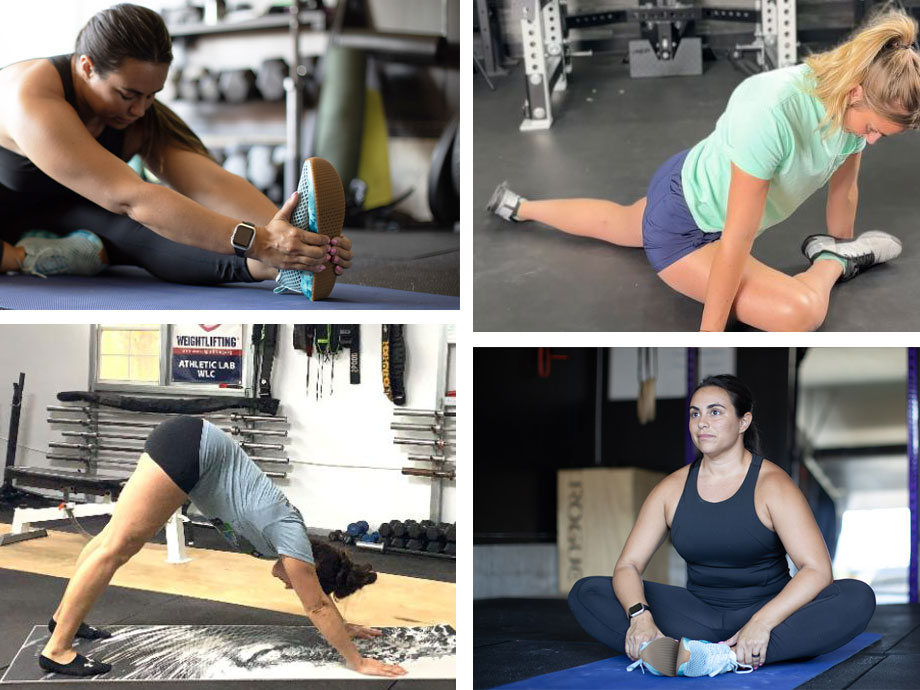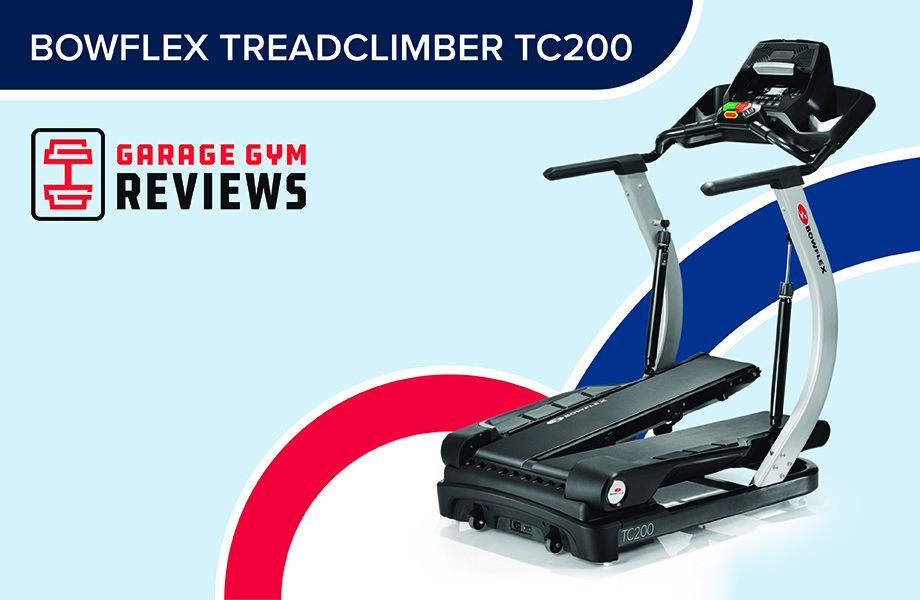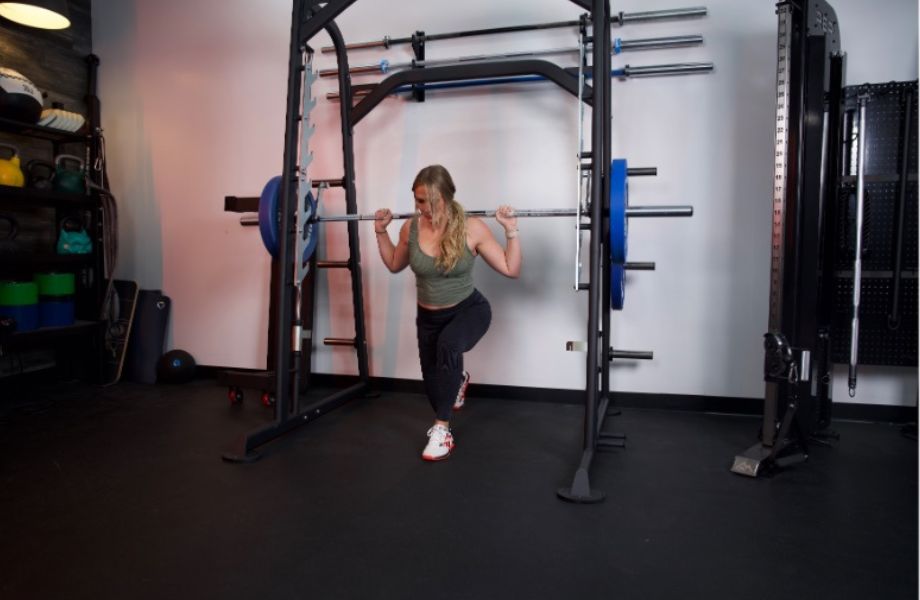Are you looking for a leg up on one of the most widely-loathed training splits there is? That’s right: we’re talking about the infamous Leg Day, aka that essential lower-body training split that some gym-goers pretend is optional (You would NEVER).
We love a tough Leg Day here at Garage Gym Reviews—just look at our dedication to finding the best squat racks—and that’s because we work the best stretches for Leg Day into our workouts to help loosen up our lower limbs, reduce our risk of injury, and jumpstart muscle recovery after we put in the hard work.
Kate Meier, NASM-CPT, USAW-L1, CF-L1, and GGR senior director of content, shares the 11 best leg stretches, including how to do them, the benefits of doing them, and how you can build them into your next Leg Day workout!
11 Best Stretches For Leg Day
- Standing quad stretch
- Lying quad stretch with band
- Downward facing dog
- Figure-four stretch
- Butterfly stretch
- Kneeling hip flexor stretch
- Pigeon pose stretch
- Seated IT band stretch
- 90/90 hip rotation
- Calf stretch
- Hamstring stretch
Standing Quad Stretch
Muscles worked: Quadriceps
Benefits: The standing quad stretch is one of the most popular leg stretches because it’s easy to do and super beneficial if you’ve just come off a set of squats or leg presses. According to Frontiers in Physiology1, static stretches like this one help reduce muscle stiffness and increase your quadriceps’ range of motion when performed regularly.
How to do it:
- Stand with your feet hip-width apart and your torso upright.
- Lift your left foot behind you and grab it with your left hand.
- Gently pull your foot toward your glutes, keeping your right leg straight.
- Hold for 15 and 30 seconds, then release.
- Repeat the stretch with your right foot.
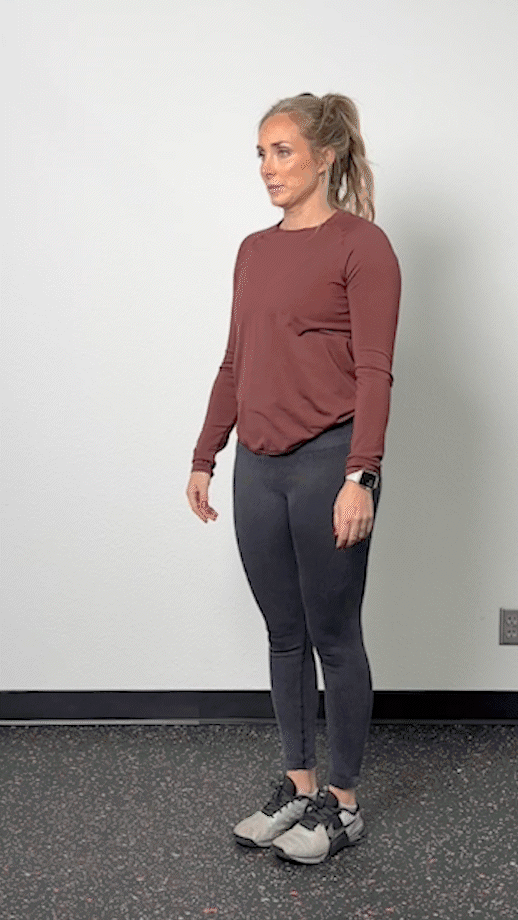
Lying Quad Stretch with Band
Muscles worked: Quadriceps
Benefits: “The standing quad stretch is great, but if you’re able to lie down, you can unlock a few additional benefits,” says Kate Meier, NASM-CPT, USAW-L1, CF-L1. “The lying quad stretch lets you get a deeper stretch, removes the balance component of the standing version, and is gentler on your lower back.”
How to do it:
- Lie prone (face down) on the floor (or on one of the best yoga mats) with your legs straight.
- Wrap a small resistance band around your left foot and grip it with your left hand.
- Bend your left knee, and gently bring your left foot toward your glutes using the band.
- Hold for 15 and 30 seconds, then release.
- Repeat the stretch, this time lifting your right foot with the resistance band.
RELATED: Best Resistance Bands
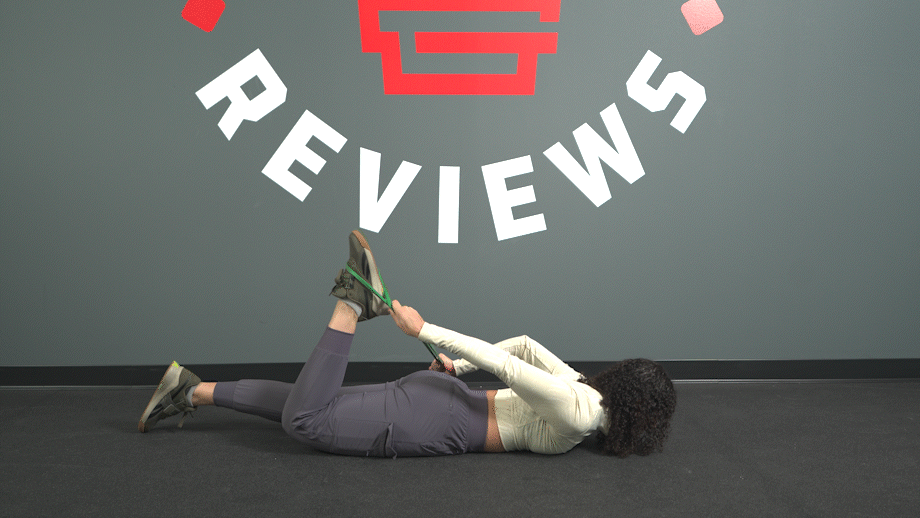
Downward Facing Dog
Muscles worked: Glutes, quads, hamstrings, calves, upper body
Benefits: Yogis know that downward dog is one of the best yoga poses at your disposal. This beginner-friendly movement targets muscle groups throughout your upper and lower body and, according to the International Journal of Yoga2, offers numerous benefits, such as increased flexibility, better balance, and reduced lower back pain.
How to do it:
- Start from a standing position with your feet hip-width apart and your upper body upright.
- Fold forward at your waist, reaching your hands down toward your mat.
- Place your hands on the floor, bending your knees as needed, and walk them out until your body forms a triangle with the floor.
- Hold for the desired duration.
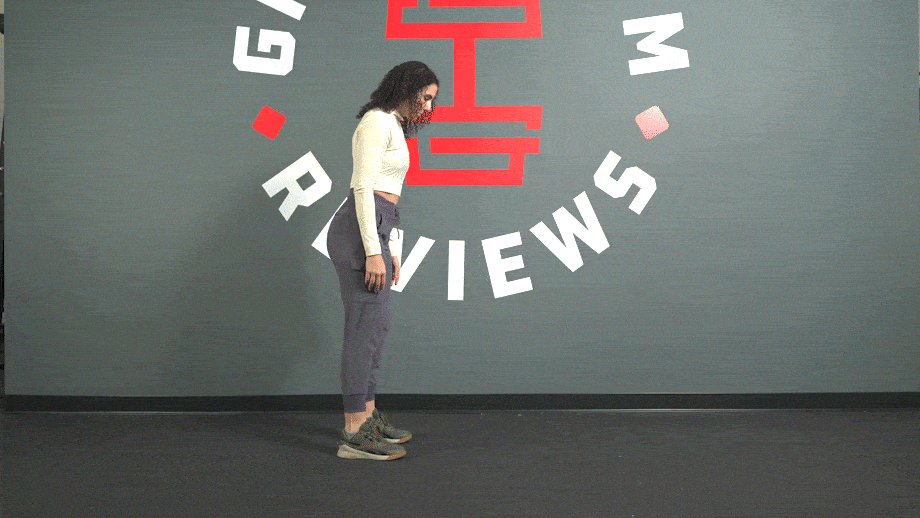
Figure-Four Stretch
Muscles worked: Glutes, hips
Benefits: You may feel a little like a pretzel in this position, but the figure-four stretch promotes hip mobility and flexibility by targeting the often-overlooked—yet highly integral—piriformis muscle, a glute muscle that enables hip rotation.
How to do it:
- Lie supine (face up) with your knees bent and your feet flat on the floor.
- Lift your right foot and set your right ankle just above your left knee.
- Reach your right arm through your legs, clasp your hands below your left knee, and pull your knee into your chest until you feel a gentle stretch.
- Hold for 15 and 30 seconds, then release.
- Repeat the stretch on your opposite side.
RELATED: Best Glute Stretches
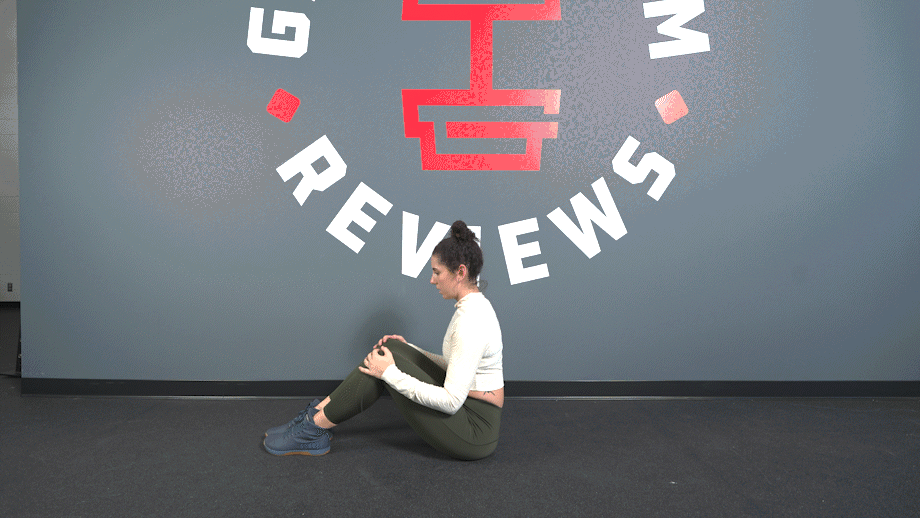
Butterfly Stretch
Muscles worked: Hip adductors, hamstrings, IT band
Benefits: Another gym class hero, the butterfly stretch is beginner-friendly and super effective at opening the hips to improve mobility and flexibility. That’s not all; a 2024 study in the Journal of Functional Morphology and Kinesiology3 found that the butterfly stretch, when incorporated as part of a static stretching warm-up routine, helped test subjects increase their sprint performance and vertical jump height. So, you may stand to gain a few performance perks from it, too!
How to do it:
- Sit on the floor with the bottoms of your feet touching and your knees bent to the sides.
- Lightly push down on your knees with your hands or elbows (depending on your flexibility) until you feel a stretch in your inner thighs.
- Hold for 15 and 30 seconds, then release.
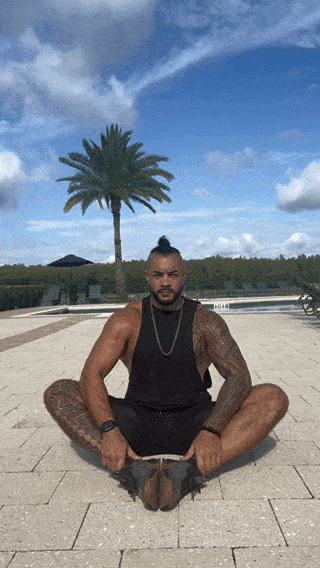
Kneeling Hip Flexor Stretch
Muscles worked: Hip flexors, quadriceps, glutes, hamstrings, calves
Benefits: “The kneeling hip flexor stretch looks a lot like the end position of the lunge exercise,” says Kate, “which means you’re opening your hips and stretching most of your leg muscles for increased mobility, flexibility, and blood flow.”
How to do it:
- Stand with your feet hip-width apart in the starting position.
- Step forward with your left foot, leaning forward into your left knee as you slowly bring your right knee to the mat. Continue until both knees form 90-degree angles.
- Flex your right foot and push your hips forward, keeping your back straight.
- Hold for 15 and 30 seconds, then release.
- Repeat the stretch for your other side.
RELATED: Hip Flexor Exercises
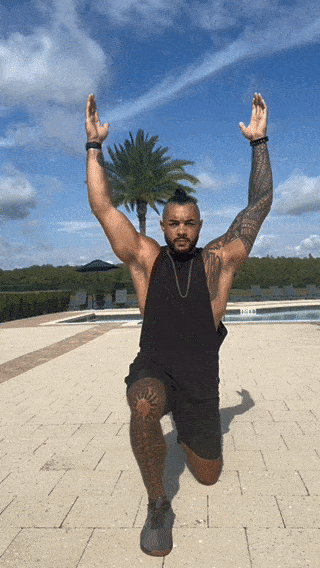
Pigeon Pose Stretch
Muscles worked: Hip flexors, glutes, lower back
Benefits: Pigeon pose is another stretch the yogis may be familiar with. This stretch is trickier than downward dog but can work wonders for your leg, hip, groin, and lower back flexibility—along with your ability to balance on one leg—according to a 2023 study in PLoS One4.
How to do it:
- Start in a downward dog, then step forward with your right leg.
- Lay your right shin on the mat so that your right knee is near your right hand and your right ankle is positioned near your left hand. Bend your right knee as needed.
- Lower your hips toward the mat with your left leg lengthened behind you. (Feel free to use a pillow underneath your hips for additional support.)
- Hold for 15 and 30 seconds, then release.
- Repeat the stretch on your opposite side.
RELATED: Balance Exercises
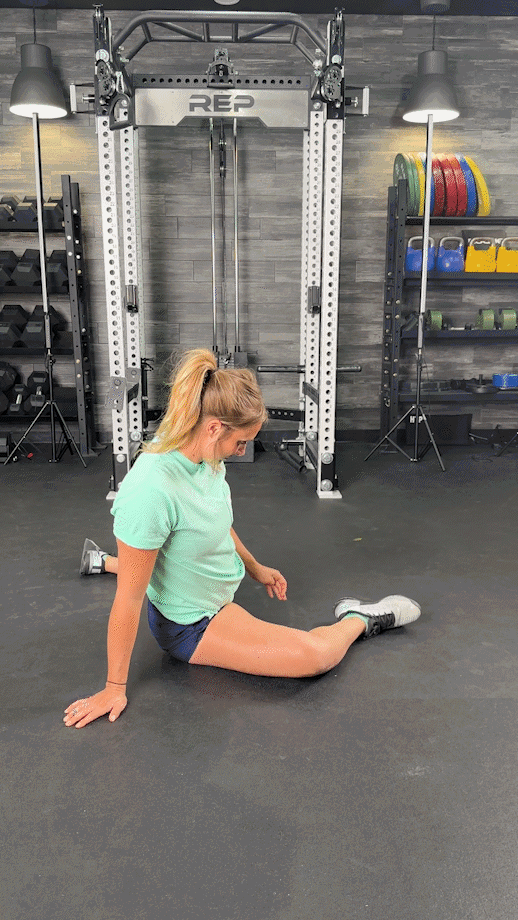
Seated IT Band Stretch
Muscles worked: IT band, hips, glutes
Benefits: According to Sports Medicine5, iliotibial band syndrome (ITBS), categorized by severe IT band tightness, is “one of the leading causes of lateral knee pain injuries in runners.” That’s why the seated IT band stretch is one of the best post-run stretches since it specifically targets this critical length of fascia.
How to do it:
- Sit on your mat with your back straight and your legs extended in front of you.
- Lift your right leg and cross it over your left leg, bending your right knee in front of your chest and planting your right foot on the mat.
- Gently twist your torso to the right, looking over your right shoulder, while keeping your right hand planted on the floor and extending your left arm in front of your right knee.
- Gently apply pressure to your right knee, pushing it to the left.
- Hold for 15 and 30 seconds, then slowly release.
- Repeat the stretch on your opposite side.
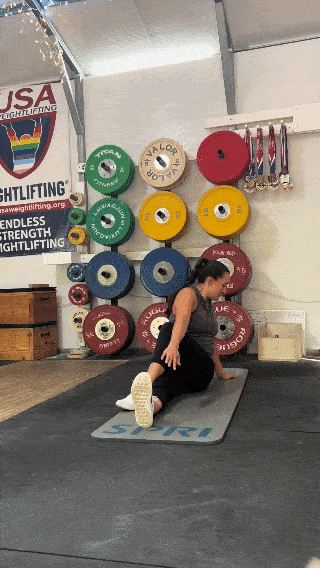
90/90 Hip Rotation
Muscles worked: Hip flexors, glutes, lower back
Benefits: “The 90/90 stretch is essentially a more accessible version of the pigeon pose,” says Kate. “This simple stretch is excellent for opening your hips, addressing muscle tightness, and alleviating various types of pain in your lower body.”
How to do it:
- From a seated position, bend your right leg at a 90-degree angle in front of you.
- Extend your left leg to the side and bend your left knee at a 90-degree angle while keeping your shoulders square and your back straight.
- Lean your upper body forward until you feel your lower body stretch.
- Hold for 15 and 30 seconds, then release.
- Repeat the stretch on your other side by gently lifting your knees back up and over in the opposite direction.
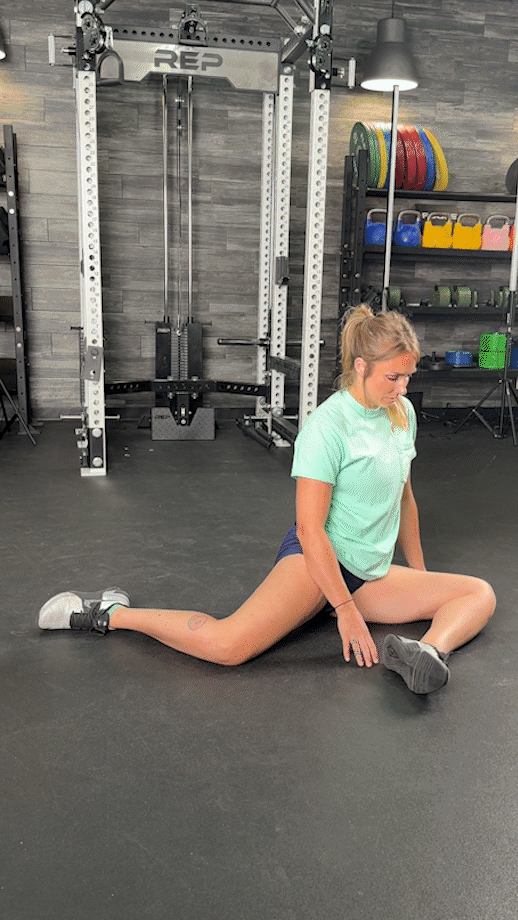
Calf Stretch
Muscles worked: Calves
Benefits: Your calves may be smaller than your other lower-body muscle groups, but that doesn’t make them less important. In fact, StatPearls6 states that your calf muscles are “fundamentally involved in walking and posture” as they “[affect] the entire lower limb and the movement of the hip and the lumbar area.” The calf stretch isolates this essential muscle and gives it the TLC it deserves!
How to do it:
- Stand facing a wall (or other flat surface).
- Step forward with your left foot and place the ball of your foot against the wall. You want your left foot off the floor except for your heel, which should remain in contact with the ground.
- Shift your bodyweight forward until you feel a stretch in your left calf muscle.
- Hold for 15 and 30 seconds, then release.
- Repeat the stretch on your opposite side.
RELATED: Calf Exercises
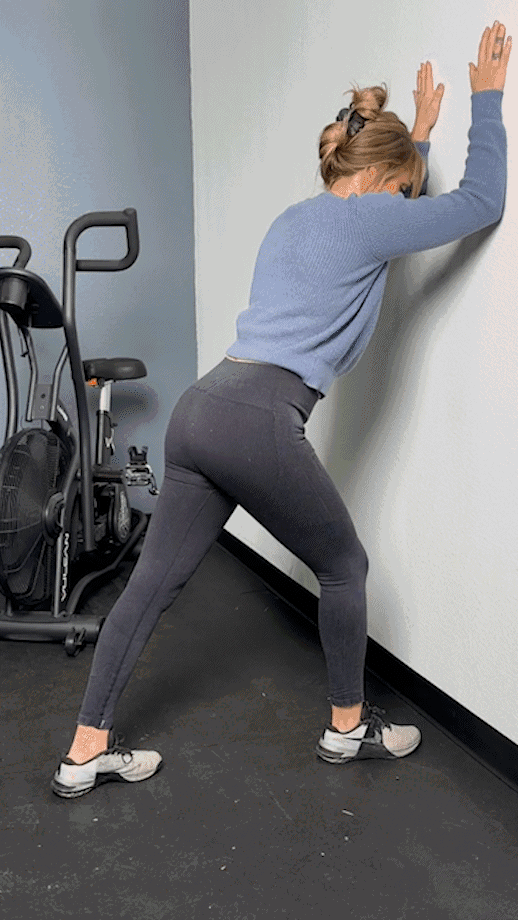
Hamstring Stretch
Muscles worked: Hamstrings, glutes, calves, back, neck
Benefits: A 2023 review in Heliyon7 found that dynamic and static stretches, like the hamstring stretch, helped improve hamstring range of motion in the short term. However, the study also noted that “multiple bouts of [static stretching] can significantly improve hamstring ROM [range of motion] compared to [dynamic stretching],” meaning it’s well worth your while to work the hamstring stretch into your leg day post-workout plan.
How to do it:
- Sit on the floor with your back straight and your legs extended.
- Tuck your right foot into your left inner thigh, keeping your left leg straight.
- Gently lean forward and reach toward your left foot until you feel a stretch.
- Hold for 15 and 30 seconds, then release.
- Repeat the stretch on your opposite side.
RELATED: Best Hamstring Stretches
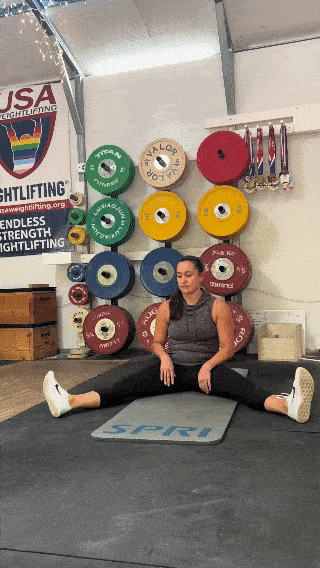
Sample Leg Day Stretching Workout
Studies show8 that working leg stretching exercises into your pre-workout warm-up primes you for exercise by increasing your heart rate, getting your blood flowing, and limbering you up.
These leg stretches also work well as a post-workout cool-down, helping you lengthen your muscles and alleviate short-term muscle soreness caused during intense exercise.
“The best approach is to pick the specific stretches that target the muscles you used most often during your Leg Day workout,” says Kate, “But if you have the time, there’s no reason you can’t stretch your entire lower body and leave no stone unturned.”
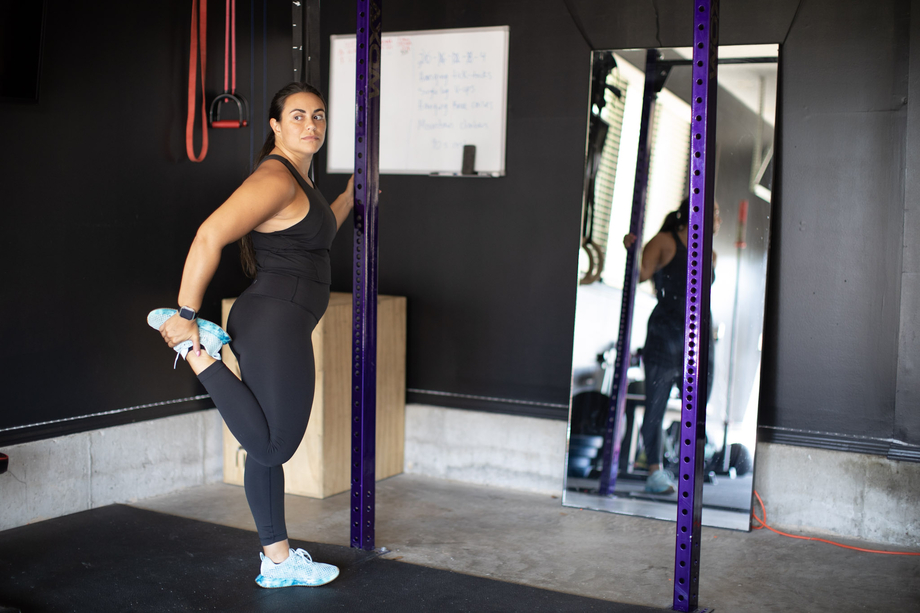
Here’s an example of what a Leg Day stretching warm-up/cool-down might look like:
| Exercise | Sets | Duration |
| Standing quad stretch | 2-3 | 15-30 sec |
| Calf stretch | 2-3 | 15-30 sec |
| Downward facing dog | 2-3 | 15-30 sec |
| Kneeling hip flexor stretch | 2-3 | 15-30 sec |
| Hamstring stretch | 2-3 | 15-30 sec |
| Butterfly stretch | 2-3 | 15-30 sec |
| Seated IT band stretch | 2-3 | 15-30 sec |
| 90/90 hip rotation stretch | 2-3 | 15-30 sec |
Benefits of Stretches For Leg Day
Leg Day may strike fear into the hearts of many when it rolls around each week, but you can take the teeth out of it by reaping the many benefits of stretching.
Here are just a few of the excellent benefits of adding leg stretches into your lower-body workout routine:
Helps Decrease Muscle Stiffness
You go hard on your lower-body workouts, knocking out reps of the best leg exercises like an absolute beast. So, you owe it to yourself to maximize the range of motion your lower-body muscles are capable of.
According to a 2023 review in the Scandinavian Journal of Medicine & Science in Sports9, static stretching reduces muscle stiffness and the range of motion (ROM) of your lower-body muscles and joints, so you can maintain a high level of performance without missing a beat.
RELATED: The Science of Post-Workout Recovery
Helps Improve Muscle Strength and Power
Speaking of performing at a peak level, a 2023 meta-analysis10 in Sports Medicine stated that “Chronic [static stretching] exercises have the potential to improve muscle strength and power.”
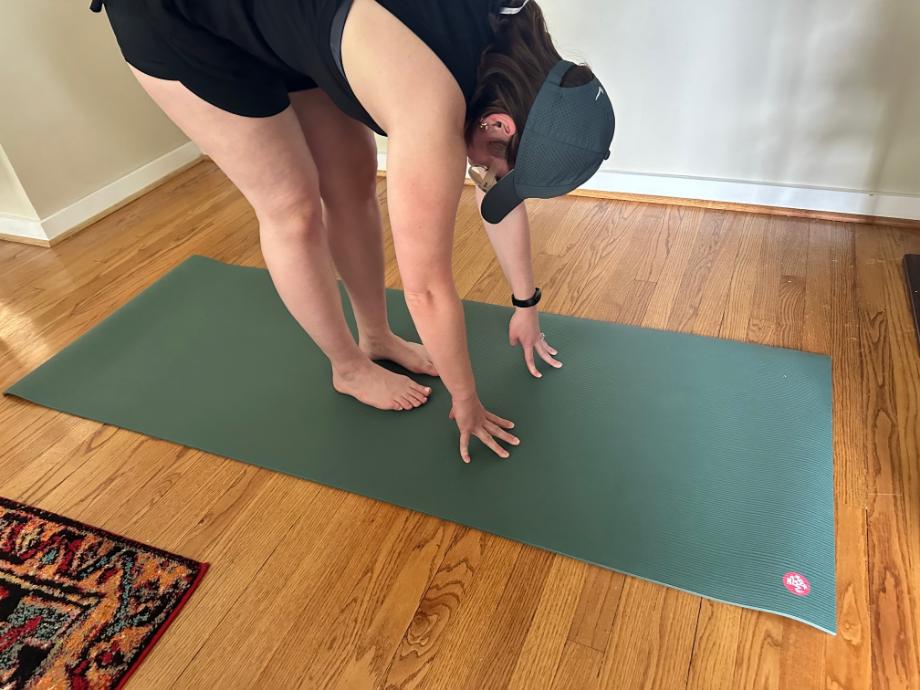
That means if you’re hitting the wall on your squats or deadlifts and feel like you just need a little something to push through and break that plateau, stretching can help you reach your full potential without having to do a complete overhaul of your training program.
Can Contribute to Better Heart Health
Stretching doesn’t only benefit the athletes and exercise enthusiasts among us; static stretches may improve your heart health, too.
According to a 2020 study in the International Journal of Environmental Research and Public Health11, “Stretching exercises reduce arterial stiffness, [resting heart rate], and [diastolic blood pressure], and improve vascular endothelial function.”
Whether you’re an athlete or a fitness enthusiast, it’s worthwhile to stretch.
What Muscles Make Up Your Legs?
You can’t overstate the importance of your legs. Your legs allow for everyday movements, along with athletic activities like running, jumping, squatting, and lunging. Maintaining the strength of your leg muscles will also be beneficial as you age.

So, what muscles make up your legs? Well, your leg muscles include:
- Quadriceps: Your quads are located at the front of your thighs and are the largest muscle group in your legs. Their primary job is extending your knees, but they also assist in hip flexion, knee stabilization, gait regulation, and shock absorption.
- Glutes: Your butt, your bottom, your rump—whatever you want to call it, your glutes are the primary posterior muscles that enable various hip movements. Your glutes also help stabilize your core muscles, contributing to good posture and staving off lower back pain.
- Hamstrings: You’ll find your hamstrings sitting on the backs of your thighs. These bad boys work antagonistically with your quads, enabling knee flexion and hip extension.
- Calves: Your calf muscles are located on the lower back half of your legs. While they’re much smaller than the other leg muscle groups, they’re integral for activities like walking and jumping.
Stretches For Leg Day: Final Thoughts
There’s a reason your phys ed teachers and coaches drilled the importance of stretching into you. Incorporating stretches into your workout routine:
- Increases heart rate and blood flow
- Decreases muscle stiffness and tightness
- Improves muscle and joint range of motion
- Enhances overall athletic performance
- Facilitates the completion of everyday tasks
- May improve heart health and other health biomarkers
Now, factor in that Leg Day is almost universally loathed, and you need every item in your fitness toolbelt to make this workout split more manageable. Our list of stretches for Leg Day dominance does just that: it gets you locked and loaded so you’ll have more juice in the tank when you’d otherwise be on your last legs.
Stretches For Leg Day: FAQs
How should I stretch for leg day?
“You can choose to stretch before or after your Leg Day workout, but I prefer dynamic stretches and exercises or some light cardio for more full-body warm-up benefits versus static stretching,” says Kate Meier, NASM-CPT, USAW-L1, CF-L1, and GGR senior director of content. “I recommend stretching for roughly 10 minutes after you finish your workout.”
Is it good to stretch after leg day?
Absolutely.
Stretching after exercise helps alleviate muscle soreness in the short term and may contribute to faster muscle recovery, so you can get back in the gym ASAP and keep putting in the work!
RELATED: 14 Cool-Down Exercises
Is it OK to do leg stretches every day?
Provided you’re not going overboard on the duration or intensity, stretching your legs every day can be beneficial. If you’re worried you may be overdoing it, consult a certified personal trainer—you can find an online personal trainer if in-person doesn’t work for your schedule— or other qualified health or fitness professional.
What can I do to not get sore after leg day?
Stretching helps stave off soreness, but it won’t save you from the agony of pushing past your boundaries during training. Program your Leg Day workout to gradually and progressively overload your muscles to avoid biting off more than you can chew.
RELATED: Best Muscle Recovery Tools
References
- Takeuchi K, Sato S, Kiyono R, et al. High-Intensity Static Stretching in Quadriceps Is Affected More by Its Intensity Than Its Duration. Front Physiol. 2021;12:709655. Published 2021 Jul 5. doi:10.3389/fphys.2021.709655
- Polsgrove MJ, Eggleston BM, Lockyer RJ. Impact of 10-weeks of yoga practice on flexibility and balance of college athletes. Int J Yoga. 2016;9(1):27-34. doi:10.4103/0973-6131.171710
- Malek NFA, Nadzalan AM, Tan K, et al. The Acute Effect of Dynamic vs. Proprioceptive Neuromuscular Facilitation Stretching on Sprint and Jump Performance. J Funct Morphol Kinesiol. 2024;9(1):42. Published 2024 Feb 28. doi:10.3390/jfmk9010042
- Luo X, Huang X. The effects of a yoga intervention on balance and flexibility in female college students during COVID-19: A randomized controlled trial. PLoS One. 2023;18(3):e0282260. Published 2023 Mar 22. doi:10.1371/journal.pone.0282260
- Hutchinson LA, Lichtwark GA, Willy RW, Kelly LA. The Iliotibial Band: A Complex Structure with Versatile Functions. Sports Med. 2022;52(5):995-1008. doi:10.1007/s40279-021-01634-3
- Bordoni B, Varacallo M. Anatomy, Bony Pelvis and Lower Limb, Gastrocnemius Muscle. [Updated 2023 Apr 17]. In: StatPearls [Internet]. Treasure Island (FL): StatPearls Publishing; 2024 Jan
- Cai P, Liu L, Li H. Dynamic and static stretching on hamstring flexibility and stiffness: A systematic review and meta-analysis. Heliyon. 2023;9(8):e18795. Published 2023 Jul 29. doi:10.1016/j.heliyon.2023.e18795
- Faelli E, Panascì M, Ferrando V, et al. The Effect of Static and Dynamic Stretching during Warm-Up on Running Economy and Perception of Effort in Recreational Endurance Runners. Int J Environ Res Public Health. 2021;18(16):8386. Published 2021 Aug 8. doi:10.3390/ijerph18168386
- Takeuchi K, Nakamura M, Konrad A, Mizuno T. Long-term static stretching can decrease muscle stiffness: A systematic review and meta-analysis. Scand J Med Sci Sports. 2023;33(8):1294-1306. doi:10.1111/sms.14402
- Arntz F, Markov A, Behm DG, et al. Chronic Effects of Static Stretching Exercises on Muscle Strength and Power in Healthy Individuals Across the Lifespan: A Systematic Review with Multi-level Meta-analysis. Sports Med. 2023;53(3):723-745. doi:10.1007/s40279-022-01806-9
- Kato M, Nihei Green F, Hotta K, et al. The Efficacy of Stretching Exercises on Arterial Stiffness in Middle-Aged and Older Adults: A Meta-Analysis of Randomized and Non-Randomized Controlled Trials. Int J Environ Res Public Health. 2020;17(16):5643. Published 2020 Aug 5. doi:10.3390/ijerph17165643




